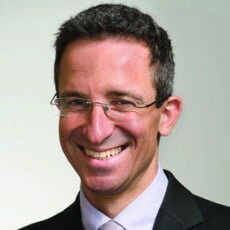by Tal Ben-Shahar
At any moment, you have a choice, that either leads you closer to your spirit or further away from it. —Thich Nhat Hanh
We are body and mind, flesh and spirit—and everything that we do in our life reflects this duality. What we do in each moment—whether at work or spending time with a best friend—can be perceived as either predominantly physical or spiritual.
The Oxford English Dictionary defines spirituality as “the real sense of significance of something.” I often refer to this definition in my work, as it provides a reminder that we can choose to focus on the real significance in what we do (such as connection to people or the contribution of our action) or to become hostage to the deceptive glitter masquerading as significant (such as material possessions or accolades). When we recognize and remind ourselves of the truly significant in that which we do, we can begin to turn our life into a spiritual journey. Moreover, when we remind ourselves that what we do in a specific moment matters, matter and spirit become one.
Perhaps no domain is situated further away from spirituality in people’s mind than business. However, an increasing body of research points to the importance of spirituality for the success of an organization—be it a school or a bank, a soup kitchen or a management consulting firm. In his work on spiritual leadership, Professor Louis Fry shows that introducing a spiritual component to the way an organization runs is critical for motivating managers and staff.
It is relatively easy to think about priests and rabbis introducing spirituality in their congregation, and with little effort we can imagine medical practitioners or teachers infusing their work with the transcendent and sacred. However, how does one introduce spirituality to fields such as banking or consulting or law? Fry convincingly argues that leaders, regardless of their organization or industry, need to clarify their values, to communicate these values through a vision, and take action that fits in with these values.
This is true not only for organizations but for individuals as well. What are your core values? What matters most to you in the work that you do, beyond the material rewards it offers? Is it integrity? Giving? Excellence? Is it being kind? Once you identify your values, you may want to draw up a short list that you can keep with you at all times and use as a reminder of what matters most to you. And then do your best to live in accordance with your values.
Live your vision and turn your life into a spiritual journey!
This post is excerpted from Choose the Life You Want: The Mindful Way to Happiness, by Tal Ben-Shahar, PhD. Copyright ©2012, The Experiment, LLC.
Learn more about happiness and positive psychology in The Certificate in Positive Psychology with Dr. Tal Ben-Shahar.
Dr. Tal Ben-Shahar, Co-founder of WholeBeing Institute, is an author and lecturer who taught the largest course at Harvard on “Positive Psychology” and the third largest on “The Psychology of Leadership”—with a total of over 1,400 students. Author of Happier: Learn the Secrets to Daily Joy and Lasting Fulfillment, he consults and lectures around the world to corporate executives, the general public, and at-risk populations on topics that include happiness, self-esteem, resilience, goal setting, mindfulness, and leadership. He holds a doctorate in organizational behavior and a bachelor’s degree in philosophy and psychology from Harvard.


 Dr. Tal Ben-Shahar, Co-founder of WholeBeing Institute, is an author and lecturer who taught the largest course at Harvard on “Positive Psychology” and the third largest on “The Psychology of Leadership”—with a total of over 1,400 students. Author of Happier: Learn the Secrets to Daily Joy and Lasting Fulfillment, he consults and lectures around the world to corporate executives, the general public, and at-risk populations on topics that include happiness, self-esteem, resilience, goal setting, mindfulness, and leadership. He holds a doctorate in organizational behavior and a bachelor’s degree in philosophy and psychology from Harvard.
Dr. Tal Ben-Shahar, Co-founder of WholeBeing Institute, is an author and lecturer who taught the largest course at Harvard on “Positive Psychology” and the third largest on “The Psychology of Leadership”—with a total of over 1,400 students. Author of Happier: Learn the Secrets to Daily Joy and Lasting Fulfillment, he consults and lectures around the world to corporate executives, the general public, and at-risk populations on topics that include happiness, self-esteem, resilience, goal setting, mindfulness, and leadership. He holds a doctorate in organizational behavior and a bachelor’s degree in philosophy and psychology from Harvard.






